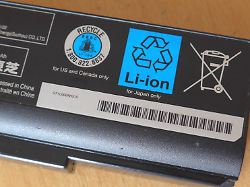Better to hoard than to dispose of
“Recycling champion Germany” is losing its shine
7/5/2023 4:01 p.m
Whether smartphone, washing machine or kitchen appliance: a large number of people in Germany would rather store old electronic devices within their own four walls than have them properly recycled. A study reveals what lies behind the hurdle of proper disposal.
Many people in Germany hoard their discarded electronic devices at home instead of disposing of them properly. According to Study by the industry organization gfu Consumer & Home Electronics 43 percent of all discarded smartphones do not get back into the material cycle. In the case of kitchen appliances, washing machines and consumer electronics, a third of the old stock is not recycled, according to the study published in Berlin. The industry association blamed a lack of knowledge about existing and ecologically sensible return options for the low recycling rates.
In the representative survey, 40 percent of people in Germany said they didn’t know that they could return their old devices to specialist dealers and markets – even if they weren’t bought there. According to their own statements, 70 percent of those surveyed had not yet known that this right of return also applies to many supermarkets and manufacturers. Only every fourth respondent was aware of the right to return used devices to online retailers. “Although Germany is a country of bulky waste, paper collection and the green dot, there is a blatant lack of practical knowledge when it comes to used technical products,” said Sara Warneke, Managing Director of gfu.
Big loss of raw materials
The survey also revealed that there are large gaps in knowledge about electronic recycling, especially among younger people. Only every second adult under the age of 35 knows how to recycle a large kitchen appliance. In contrast, the figure for those over 55 is 81 percent. At the same time, young people would be very interested in topics such as sustainability. “People between the ages of 18 and 34 are the most receptive to repairs and most emphatically ask for free return options and better education,” said Warneke.
In purely mathematical terms, every household in Germany has an average of 0.6 discarded washing machines, 0.7 large kitchen appliances, 1.7 laptops or consumer electronics devices and two smartphones. As a result, large amounts of raw materials were lost to the circular economy. Statistically speaking, every household contained 45 kilograms of steel, four kilograms of copper, three kilograms of aluminum – and above all because of the mobile phones and laptops, 0.3 grams of gold, which should actually be fed into the circular economy. The unused gold alone adds up to over twelve tons in Germany.
